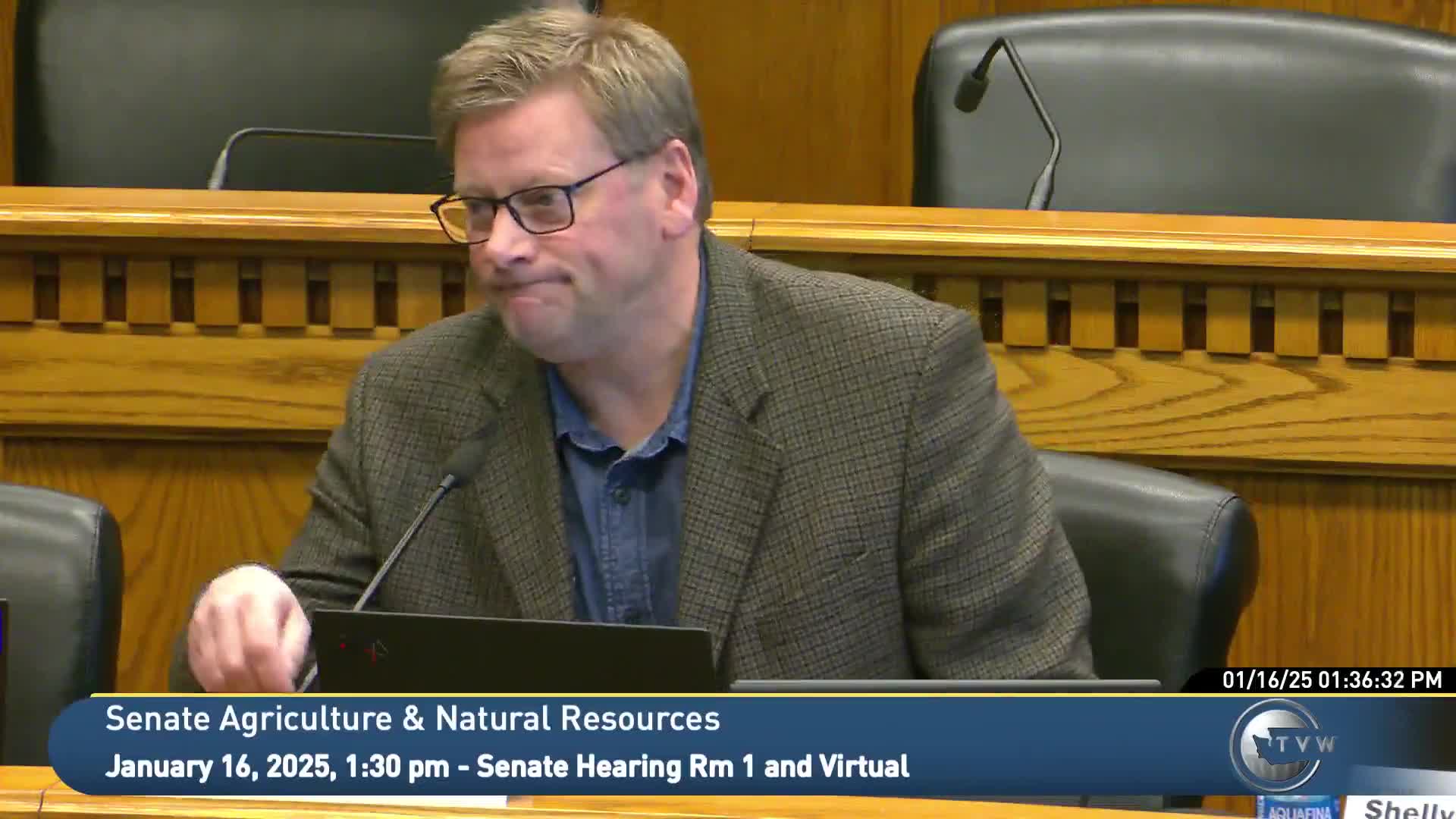Senate committee hears bill to exempt small Washington farms from sales tax on certain equipment
Get AI-powered insights, summaries, and transcripts
Subscribe
Summary
Senate Bill 5092 would expand an existing parts exemption to exempt purchases of qualifying farm machinery priced $10,000 or more for farmers with annual gross sales under $2,000,000; proponents said the change would help small operators, while staff flagged an estimated $3 million annual state revenue loss.
The Washington Senate Agriculture, Water, Natural Resources & Parks Committee heard public testimony Jan. 16 on Senate Bill 5092, a proposal to broaden a sales and use tax exemption for farmers purchasing qualifying farm machinery and equipment.
The bill would make farmers with annual gross sales or harvest values of less than $2,000,000 eligible for a sales-and-use tax exemption on purchases of qualifying equipment bought for $10,000 or more, provided the buyer presents an exemption certificate from the Department of Revenue. Eligible farmers could claim the exemption only once per year. The bill would expire Oct. 1, 2035, and require a JLARC fiscal analysis in 2034 to assess the exemption’s fiscal effect and the number of small and medium producers in the state.
Committee staff said a preliminary fiscal note estimates approximately $3,000,000 in annual general‑fund revenue loss and additional impacts to local sales tax. Jeff Olson, committee staff, briefed the panel and answered questions about definitions and the fiscal timing.
Sponsor Senator Matt Behnke said the exemption is targeted to small and mid‑sized producers and intended to help sustain farms and the supply chain amid falling net farm income, rising input costs and interest rates. “This is targeted to a point where we’ll have benefits returning the investment not only on the price of our agricultural commodities, but to the small farmers that are there staying in existence,” Behnke said.
Industry and farm advocates who testified supported the measure. Eric Wareham, vice president of government affairs for the North American Equipment Dealers Association, said dealers lose sales to out‑of‑state sellers when Washington remains one of two states taxing farm implements. Jesse Johnson, founder of the Farmer John Coalition, said the exemption would lower equipment costs for beginning and family farmers and reduce supply‑chain risk.
Testimony and staff discussion focused on the bill’s eligibility thresholds, the $10,000 per‑item price floor, the one‑time‑per‑year use limitation, and the estimated revenue impacts. Staff noted the Department of Revenue would prescribe the exemption certificate form and that JLARC would review the program in 2034.
The committee opened and closed public testimony without taking a vote during the Jan. 16 hearing. If advanced, the bill would require implementing guidance from the Department of Revenue and a JLARC review before its scheduled sunset in 2035.
